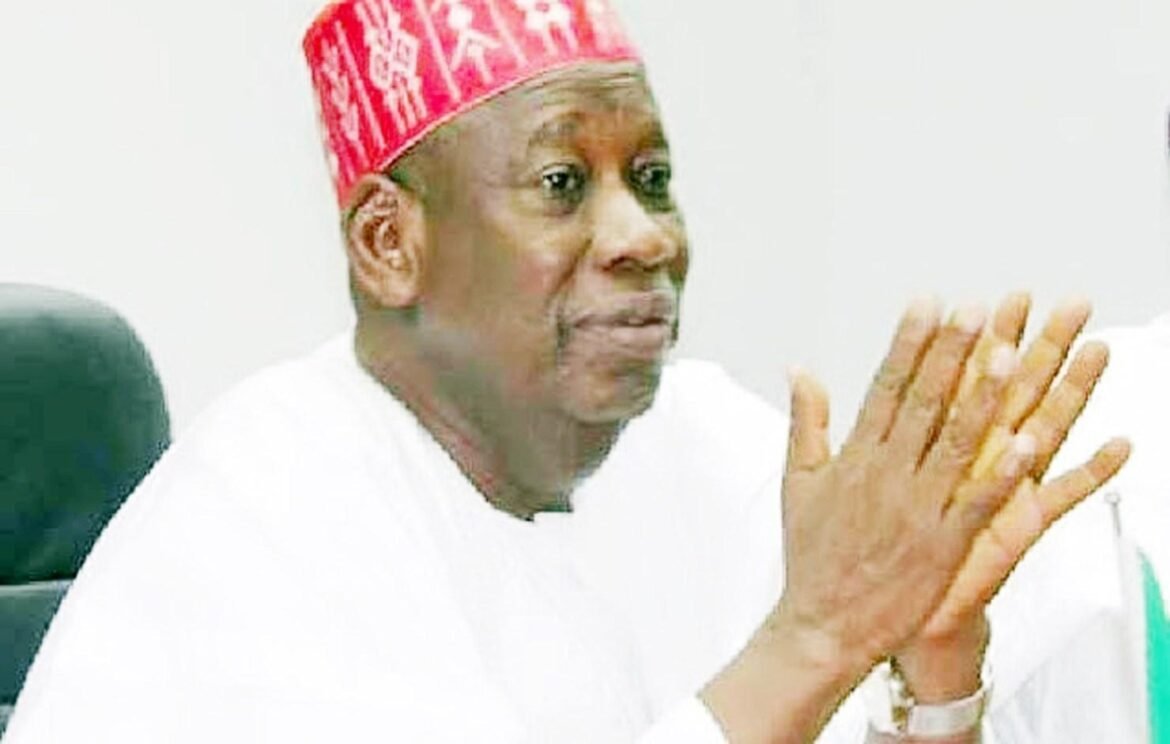It’s a tradition now. Every festive period or when a state governor is in a good mood, he releases a number of prisoners from incarceration.
Usually, there is no real procedure and laid process in choosing the most deserving prisoners or who should qualify for clemency.
The only known criteria is that prisoners must have committed petty crimes. There is no permanent board that reviews and makes detailed assessment of each prisoner’s crimes.
In that sense, the entire process is arbitrary. And so, it was the weekend before Eid el-Fitr when Governor Abdullahi Ganduje freed some 200 inmates from prison custody paying fines that add up to N1.5m.
Those freed on the orders of the governor were from Kurmawa Central Prison, Goron Dutse and Wudil Prison.
For those unlucky not to have been freed, the governor was reported to have told them to wait until the next Eid, three months away.
And since they are chosen at random, not one of them knows if he will qualify or has met the needed criteria to earn the state governor’s pardon.
There is no date to when he made his own visit and intervention on behalf of the prisoners, but still Emir Muhammad Sanusi would not be outdone by Ganduje. He paid fines totally N5m to free prisoners asking them to make the best of Ramadan.
For those unlucky not to have been freed, the governor was reported to have told them to wait until the next Eid, three months away
The Federal Government recently approved a N2.8bn to install a digital integrated system for prison records.
It is meant to help authorities track records of prison inmates, pending cases and even monitor cases of those who have overstayed their prison terms or were wrongly imprisoned.
The contract for the integrated system suggests that none of these are presently taking place. Very little attention is paid to individual cases by authorities.
So how do you modernize a system when between the courts, the prosecutor’s office and the Nigerian Prison Service, nobody takes responsibility when cases are not heard on time or prisoners are simply forgotten, left to rot in prison?
A large number of those incarcerated are yet to be convicted, some genuinely have to be assumed to be innocent and of those numbers, many are adolescents.
And even in the governor’s and emir’s arbitrary exercise to free prisoners, the weakest and most vulnerable are usually overlooked.
Politicians put on trial for stealing billions of naira usually have no difficulty paying fines in the millions in bailing themselves out from prison custody.
They hire the best of lawyers to stall proceedings at their trials. The trials end up lasting decades only for a judge to finally dismiss the charges because of the lack of diligent prosecution.
And even when they are detained by anti-graft agencies, they are lodged in relative comfort. That is what justice looks like for the rich and powerful.
On the other side of the spectrum are poor and young people, mostly teenagers, who are yet to find their way in life and end up on the wrong side of the law.
So how do you modernize a system when between the courts, the prosecutor’s office and the Nigerian Prison Service, nobody takes responsibility when cases are not heard on time or prisoners are simply forgotten, left to rot in prison?
Their crimes range from stealing mangoes to cutting down a family.
They are jailed and bail for them is set for as little as N5,000 or in their case, it is as much as N5,000 because it’s an amount and condition for bail that proves insurmountable.
So, they remain behind bars indefinitely, waiting for a trial that may never come.
For some, the system has forgotten of their existence, their young lives drifting away, while they are praying for miracles or for someone to come to their rescue. Hardly anyone ever does.
That is what justice looks like for them. It is because there is no one there for them that they ended up delinquent.
They come from broken homes or have none at all and more often than not, have never attended one day of school. And that in part is the story of lives in Wudil Prison.
It could be any other prison in the country. But a big part of the story is why they are put on trial as adults in the first place.
Why are they are incarcerated along with adults in a prison system that shows no mercy to young, weak and vulnerable people.
By any standard and law, minors don’t commit crimes and as such, cannot be treated like criminals.
An offense by a minor that is in breach of the law in most countries is treated as a delinquent act. As it turns out juvenile delinquency in Nigeria is nonexistent, at least in practical terms.
The 2003 Child’s Right Act was meant to end this kind of discrimination against minors. In most parts of the country, that hasn’t happened.
The system has been slow in keeping up with changes to the law. And the only persons to blame are state governors, the attorneys general of states and the various chief judges of the states.
And in the case of the many juveniles in Wudil Prison and Kurmawa Central Prison, blame lies solely on Governor Ganduje.
For some, the system has forgotten of their existence, their young lives drifting away, while they are praying for miracles or for someone to come to their rescue. Hardly anyone ever does
What will be better than putting on a show of generosity during festive periods is for him to fix the system and start setting up juvenile courts.
The Administrative of Criminal Justice Act was also supposed to speed up trials of suspected criminal offenders and decongest the prisons. That hasn’t happened and the question needs to be asked, why?
The only promise President Muhammadu Buhari has made so far in his second term is to improve efficiency in both the police and the judiciary.
Ironically, one of the very last projects approved by his cabinet and members of the federal executive council before it was dissolved is the building of prisons with billion naira. Who are they going to incarcerate in the prisons?
With the war on corruption on full steam, will the prisons be populated and be fit for politicians or will they end up being homes for the poor?
A good number of those already in federal prisons are awaiting trial. And of those, some under aged and barely able to make positive life changing decisions on their own.
To improve service delivery in both the police and the judiciary, the President will have to do far more than just build prisons.
He has to advance laws that protect minors.
Even without any far-reaching reforms in the justice system to make it more efficient, there is a lot the Chief Judge in Kano can do to ease the suffering of the young people he is holding in prison for committing petty crimes and being too poor to pay their way out of prison.
To improve service delivery in both the police and the judiciary, the President will have to do far more than just build prisons. He has to advance laws that protect minors
There is a lot the governor too can do. It is costing government far more to keep them locked up than offset their debts.
Nura Sagir was acting chief judge in Kano for four whole years.
That was a political choice made by the state governor that did not in any way help in strengthening judicial processes in the state.
In a way, it was how the governor ensured the status quo remained and there was no attempt to embark on radical judicial reforms or even an expression of judicial independence from political authorities.
Still, Chief Judge Sagir has been sworn in as the substantive head of the state’s judiciary for a month now. Unlike the governor, emir or other chief judges, he made no effort to show clemency or free prisoners during Eid el Fitr.
In the past, he has made a tour of prisons in the state and freed some awaiting trial inmates.
But without his determined efforts, the governor’s office will be just as slow in ensuring the system changes to meet up the Child Right’s Act as it was in confirming him in office.
If he can’t do anything to clear the backlog of the cases of people awaiting trial, Judge Sagir should at least help set up juvenile courts and homes for adolescents who have been accused of stealing bread and end up spending 20 years in prison because of a dysfunctional system.








